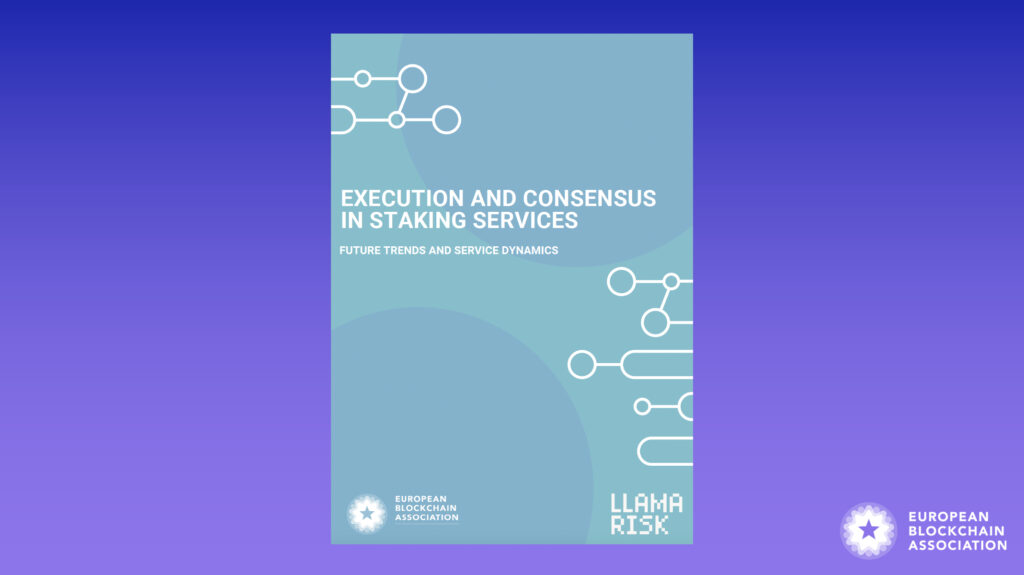The world of Ethereum staking is heating up as developers roll out critical upgrades that could reshape the dynamics of who validates transactions and how. A new research report from the European Blockchain Association dives deep into the future of staking on Ethereum, unpacking the technical proposals and innovations that will power the network’s evolution.
In our latest paper we explore future trends and service dynamics of execution and consensus in staking services within the Ethereum blockchain by examining the current EIP proposals including those which will likely make their way into the next Prague-Eelectra upgrade.
Additionally, LlamaRisk has conducted an in-depth analysis of technical staking providers and regulatory implications, which you can find in Annex I

These proposals aim to balance the influence of #validators in the block proposal process, stimulating participation from diverse actors along the #PoS value chain. We explore solutions for mitigating active vs. passive monopoly within:
🔹 EIP-7002 Execution-Layer Triggerable Exits
🔹 EIP-7251 MAX_EFFECTIVE_BALANCE
🔹 Enshrined Proposer Builder Seperation (ePBS)
🔹 EIP-7547 Inclusion Lists
🔹 Execution Tickets
🔹 Rainbow Staking
Our analysis on inclusion lists and execution tickets in blockchain networks emphasizes the importance of #decentralization and the establishment of a structured market for data processing.
Unlike traditional financial mechanisms like Payment for Order Flow (PFOF), which have faced scrutiny for potential conflicts of interest and market manipulation, inclusion lists and execution tickets aim to create transparent and fair market dynamics within blockchain ecosystems.
By decentralizing the allocation of proposing rights and execution payloads, these mechanisms seek to distribute decision-making power among various entities, fostering a more democratic and competitive environment for data processing services. At the same time, third party execution ticket holders may be preconfirmers for L2s, hedge funds, builders and high frequency trading (HFT) firms who excel at specialized tasks. This heterogeneity may create a different regulatory anchorage separated along data processing or financially oriented operations.
Moreover, the modularity thesis will have a profound effect on the composition and treatment of staking services within Ethereum. The struggle between active vs. passive monopoly means that validators can wield significant influence over #network#governance and market dynamics.
Modularity could support decentralization at the #consensus layer, bolstering #cyber resistance and network security. We further argue that decentralized validator technology (DVT) such as SSV or OBOL is reinforcing the modularity thesis within Ethereum.
Special thanks to my co-authors Eugenio Reggianini Regiannini,
Svetlin Konsulov, CAMS, LL.M. and Chris Payne for their invaluable contributions and insights.
Feel free to get in touch if you would like to discuss further! 💡

